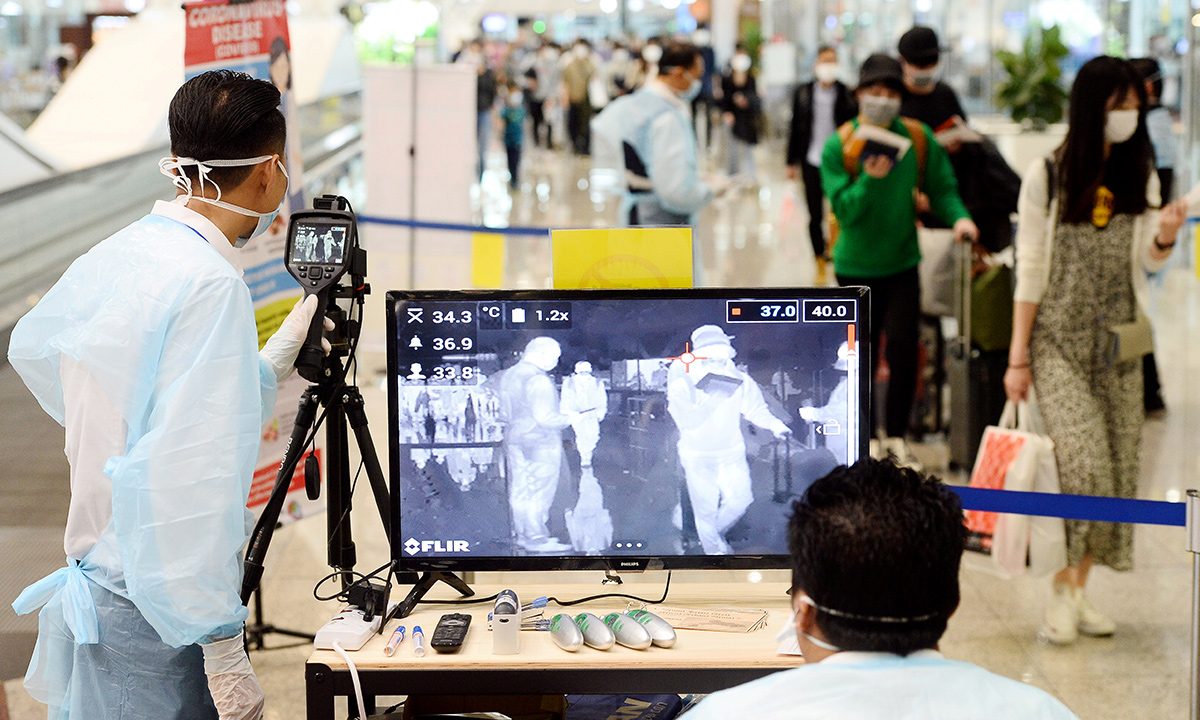

Even as the Delta variant drives a resurgence of COVID-19 caseloads and hospitalizations, the undeniable psychological and economic desire to resume social, educational, and economic activities is pushing governments and private entities to consider how to verify vaccination, the presumed vehicle for risk-abated personal movement and gatherings. While legal and ethical debate around effectively compulsory vaccination continues to rage, many foreign governments are making progress on plans originally conceived, as long as a year ago, to establish what are commonly referred to as “vaccine passports.”
The term vaccine passport is frequently and incorrectly used interchangeably with vaccine credentialing or verification. Vaccine credentialing is simply corroboration of vaccination by a government or health authority. In the United States, some states have developed mechanisms for individuals to access digital record of their own COVID-19 vaccine records, such as in Virginia, and most federal agencies, in accordance with President Biden’s mandate that federal workers provide proof vaccination, are leveraging existing human capital management portals like Launchpad and ServiceNow. Vaccine passports, on the other hand, go one step further and generally bestow a set of exemptions from mandated behaviors like quarantining, testing, and social distancing, as determined by a national government or locality.
In light of robust social and political controversy surrounding vaccine credentialing generally and in the absence of a federal identification system, it is highly unlikely that the Unites States will adopt vaccine passports, even as it weighs whether and how to permit unvaccinated international travelers into the country. Other governments, like Canada, have been less hesitant to articulate terms of entry and in-country freedoms that will be tied to vaccine credentialing, essentially, to vaccine passports.
Inherent in the name “passport” and of greatest impact to economies dependent on international trade, inter-governmental coordination is key to success. In February 2021, the Royal Society published “Twelve criteria for the development and use of COVID-19 vaccine passports,” a paper that has greatly influenced public sector thought around the development of viable solutions. Broad in its scope, the paper addresses moral, legal, pharmacological, and diplomatic implications to the issue. It also lays out topic areas specifically attuned to technological capability. The Society concludes that vaccine passports should be:
- Affordable for individuals and government
- Portable
- Internationally standardized
- Able to provide verifiable credentials
- Secure for personal data
- Based on an interoperable platform
In the past, public international organizations like the World Health Organization (WHO) provided a trans-border credible vaccination verification system via the International Certificate of Vaccination or Prophylaxis (ICVP) or, colloquially, the Yellow Card. While the Yellow Card has begun migration to a digital app, it remains primarily paper-based, a system that, while portable, can be bureaucratically cumbersome, costly to produce, susceptible to fraud, and require lengthy wait times for individuals to obtain. As a result, governments are turning to digital solutions, acknowledging that such solutions carry risks of deepening the digital divide.
The most widely-adopted and mature system to date is the European Union Digital COVID Certificate. Data collected adheres to the international standards laid out by the Health Level Seven (HL7) Fast Healthcare Interoperability Resources (FHIR), essentially a minimalist approach to data formats and elements commonly used for electronic health data exchange, in this case, as it pertains to COVID-19 vaccination dates, type, place administered, etc. This data translates to QR codes—specific to individual vaccine administering authorities and verifying individual EU citizens’ vaccination—that can be presented digitally to border authorities.
Ensuring some measure of consistency and international standards across all countries in the way the vaccine passports are applied or how data is stored and protected would go a long way. But at present, this remains a major hurdle.
Asian Development Bank Health Sector Group Chief Osewe, May 3
Building upon existing legal and political frameworks, the Certificate is essentially a gateway for the exchange of credentialing data, leveraging each country’s extant national health databases and electronic health record solutions like Better Platform and Dossier Médical Partagé (DMP). In this way, the EU Certificate program flows identity proofing burdens down to member countries and, by not storing data once a QR code is generated, efficiently avoids any data storage and security costs.
In the absence of a transnational governing body, Asian governments find themselves starting from scratch in developing vaccine passport protocols. Reliance on international travel for tourism, executive engagement, and lower skilled workforce movement is prompting a flurry of activity at both the start-up level and among larger institutional players to deliver tailored solutions. But, as is frequently the problem with bespoke solutions, interoperability and reciprocity across the region remains problematic.
Japan has garnered international attention for securing numerous reciprocity agreements with European nations for its vaccine passport but the “passport” is simply a static record, digital copy of an individual’s COVID-19 vaccine record linked to a passport number, not to any national database. Like Japan, numerous countries—including Singapore, Vietnam, and the Philippines—are “hedging their bets” by continuing to require an in-country quarantine period, albeit shortened, even with proof of vaccination. As economic and social pressures grow, more countries are likely to follow South Korea’s example and exempt vaccinated travelers from quarantine requirements altogether.
In order to reach that end state, governments across Asia are considering whether and how to apply HL7 FHIR standards, what platforms can optimize interoperability and leverage existing systems, and security for the large amounts of data to be processed and stored.
Given struggles with vaccine rollout and concerns about digital divide, the Indian government has resisted calls for vaccine passports to date. Eventually, India is likely build off its Digital Infrastructure for Vaccination Open Credentialing (DIVOC) system that generates a credentialing QR code for each vaccine patient. In a bid for speedy development, DIVOC was built using open source software laid on top on existing projects. As a result, data security issues may become a major DIVOC challenge. At the other end of the privacy concerns spectrum, companies like GVE and OneLedger are developing vaccine passport security solutions leveraging lessons learned from blockchain and digital currency.
Whether relying on third party devised solutions like the International Air Transport Association (IATA) Travel Pass or employing accelerating technology to optimize existing systems, Asian governments will, through and beyond 2021, make large investments in vaccine passport technologies because the cost of not doing so is simply not tenable. Technology providers should seize this opportunity to help shape the vaccine passport digital landscape.
  |
Marisa Paul, Guest Contributor |
| FBIQ welcomes Marisa Paul as a guest contributor. Marisa served as the Senior Deputy Director of Response for USAID’s first COVID-19 Task Force (2020-2021). Prior to her Task Force assignment, Marisa led acquisition and assistance reform efforts for USAID and served as an acquisition policy and budget analyst for the Department of Defense. She has also worked as a senior advisor to market-leading multinational R&D and security companies. |